Among the causes of the low quality of grape juice concentrate is its adulteration through the inclusion of ingredients or compounds such as exogenous sugars, water, colorants, aromas, etc. How to choose an authentic grape juice? For you to be sure of the high quality of the product you buy, we explain all the factors that affect the quality of grape juice concentrate in this post, what parameters indicate a possible adulteration and what processes a good supplier of 100% authentic grape juice concentrate must comply with.
- What factors are involved in the quality of grape juice concentrate?
- Chemical parameters that help to detect adulterated grape juice concentrate
- Some stages of the production process that allow inferring the quality of grape juice concentrate
- Keys to choosing a 100% authentic grape juice concentrate supplier
- At Julian Soler we help you to buy grapes and nothing else
What factors are involved in the quality of grape juice concentrate?
Grape juice concentrate quality is made up of a complex set of factors and interactions that intervene in each of the production processes. From vineyard management to the techniques and technologies used in the processing plant. Mainly, it is the quality of the grapes that has a significant impact on the quality of the grape juice concentrate. Therefore, the practices that are part of the cultivation process to obtain healthy and fresh fruit, such as maintaining the balance of the vine, exposing the fruit or avoiding water stress, also affect the quality of the grape juice.
But we also achieve this with other variables that affect the quality of this product, such as climate, soil and grape variety. For example, grape acidity decreases throughout the ripening cycle. In a cold climate, grapes with a high level of acidity can be obtained. But in warm climates this acidity of the fruit will be reduced.
Chemical parameters that help to detect adulterated grape juice concentrate
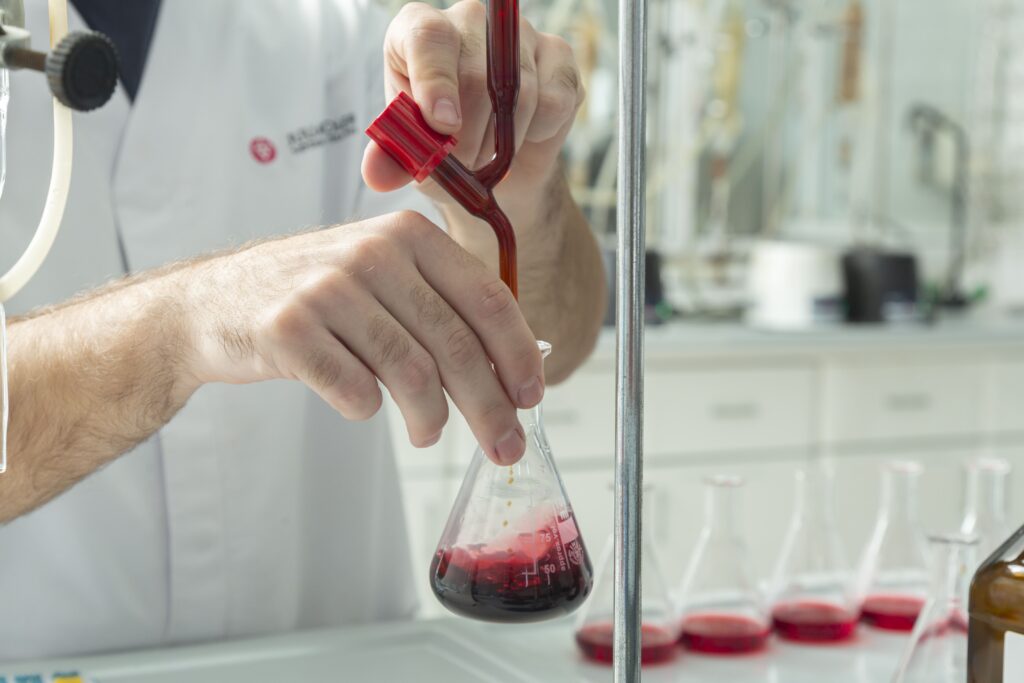
The authenticity of a grape juice concentrate sample can be detected through:
- Quantitative analysis, in order to determine the amount of compounds present in the grape juice concentrate, and to compare the chemical parameters of the sample under study with those of a 100% natural grape juice.
- Analytical methods that allow the identification of substances, such as adulteration with water and exogenous sugars, additions to achieve a higher product yield. However, these compounds can also be determined quantitatively.
The main physical/chemical parameters that can indicate a possible adulteration of the grape juice concentrate are basically the acidity, the formaldehyde index and the conductivity of the product.
Formaldehyde index
The formaldehyde index or formaldehyde number is one of the chemical parameters used to evaluate the quality or authenticity of the grape juice concentrate. Exactly, it indicates the content of amino acids present in the grape juice.
- In the grape juice concentrate, the concentration of amino acids increases with grape ripening, while it decreases as a function of the harvest load (yield or yield/pruning weight). But abnormally low values of the formaldehyde index may indicate possible adulteration.
Acidity
Another chemical parameter that can be quickly measured is acidity. In grape juice the major acids are tartaric acid and malic acid, although it also contains other acids in smaller quantities, such as citric acid. The sum of all these values determines the acidity level of the grape juice concentrate.
- As explained, there are factors during cultivation that can influence the increase or decrease of grape acidity. However, an abnormally low acidity level points to a possible adulteration of the grape juice concentrate.
Conductivity
Thermal conductivity is one of the physical properties that helps determine the authenticity of the grape juice concentrate. It is influenced by the sugar concentrations in the juice and is closely related to the sensory characteristics of the juice.
- At high sugar concentrations, thermal conductivity shows a significant reduction. Therefore, extremely low conductivity values may indicate grape juice concentrate adulteration.
Some stages of the production process that allow inferring the quality of grape juice concentrate
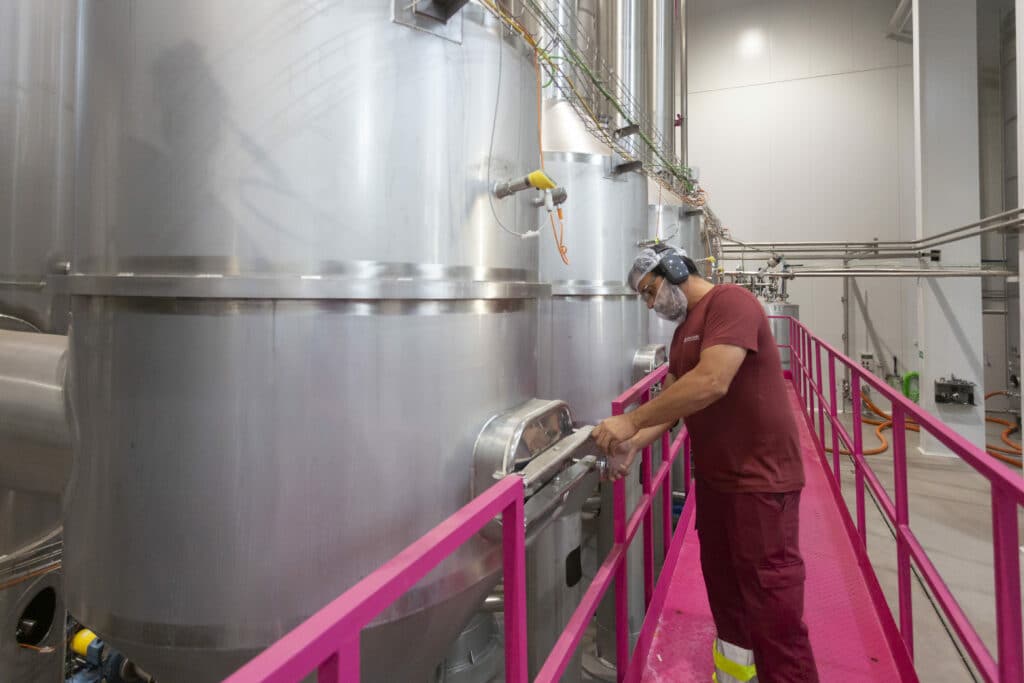
In addition to the physical/chemical parameters, there are phases of the grape juice concentrate production process that allow us to infer the quality of the product. For example:
Quality of raw materials
In grape juice concentrate production, the quality of the raw material is fundamental. This translates into the effective control that the supplier must maintain over the actions, techniques, technology and equipment used both in the vineyard (cultivation and harvesting processes) and in the processes of delivery and physical/chemical analysis of the grapes. Including the selection of the soil and the ideal grape variety to achieve a high value final product.
Technology used in the production process
The grape juice concentrate production process must integrate the appropriate technology that allows the production of grape juice without losing its qualities and maintaining traceability controls. For example, adopting state-of-the-art systems and equipment for juice analysis, comprehensive information systems that provide accurate data and programs for process quality control.
Traceability
Traceability is essential to obtain an authentic grape juice concentrate. Knowing the history of the raw material and the location of the product at each stage of the process is essential to guarantee both the quality of the grape juice concentrate and its safety.
Keys to choosing a 100% authentic grape juice concentrate supplier
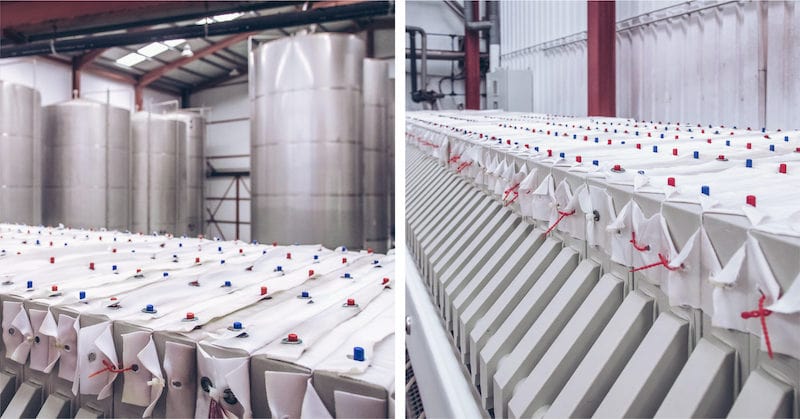
So that you can be completely sure of the quality of the product you buy, here are 5 keys to help you choose a supplier of 100% authentic grape juice. A good grape juice concentrate producer should:
- Control the growing and harvesting process. The supplier must grow (or have allied growers), harvest the grapes during their optimum ripening and transport them without intermediaries to the plant for analysis and processing.
- Rely on state-of-the-art technology. For the analysis and classification of the raw material and for controlling the quality of the grape juice during all production phases.
- Control the traceability of the product in all phases of cultivation (harvesting, transfer, unloading and processing). Not only to know the historical origin of the grapes, but also to maintain quality and food safety standards and to study possible improvements in the processes.
- Have a laboratory equipped with state-of-the-art technology for grape analysis/classification and grape juice concentrate quality analysis, as well as to be able to innovate in original products.
- Have tanks and chambers with the appropriate characteristics and volume for the storage and conservation of the grape juice concentrate. To maintain its qualities intact throughout the year.
At Julian Soler we help you to buy grapes and nothing else
At Julian Soler we produce 100% authentic grape juice concentrates, with no additives, no allergens, no preservatives and under a unique process we call Nothing But Grapes, in order to deliver you grapes and nothing else. The high quality of our grape juice concentrate starts in our vineyards in Castilla – La Mancha, the largest wine region in the world. Therefore we only work with quality raw material (white and red grapes).
In the vineyards the grapes are harvested at the stage of optimum ripeness and immediately transferred to our facilities. In this way we fully control the traceability of our product and maintain its high quality and food safety. And our quality certifications are a guarantee of this. We have the SGF certificate that guarantees the authenticity of our concentrated must. We also have the FSSC22000 certificate, recognized by the GFSI.
We have grape juice concentrate available all year round, thanks to our storage capacity of more than 20 million liters and to the cold storage chambers that keep the characteristics of our product stable and intact. We can deliver Julian Soler grape juice concentrate to any region of the world. In Julian Soler we are ambassadors of the Spanish grape around the world, we export to more than 60 countries.
Contact us and ask for a free quote. And if you want to live with us the passion for grapes day by day, follow us on Linkedin to see how our grapes grow and all our innovative projects for 2023.
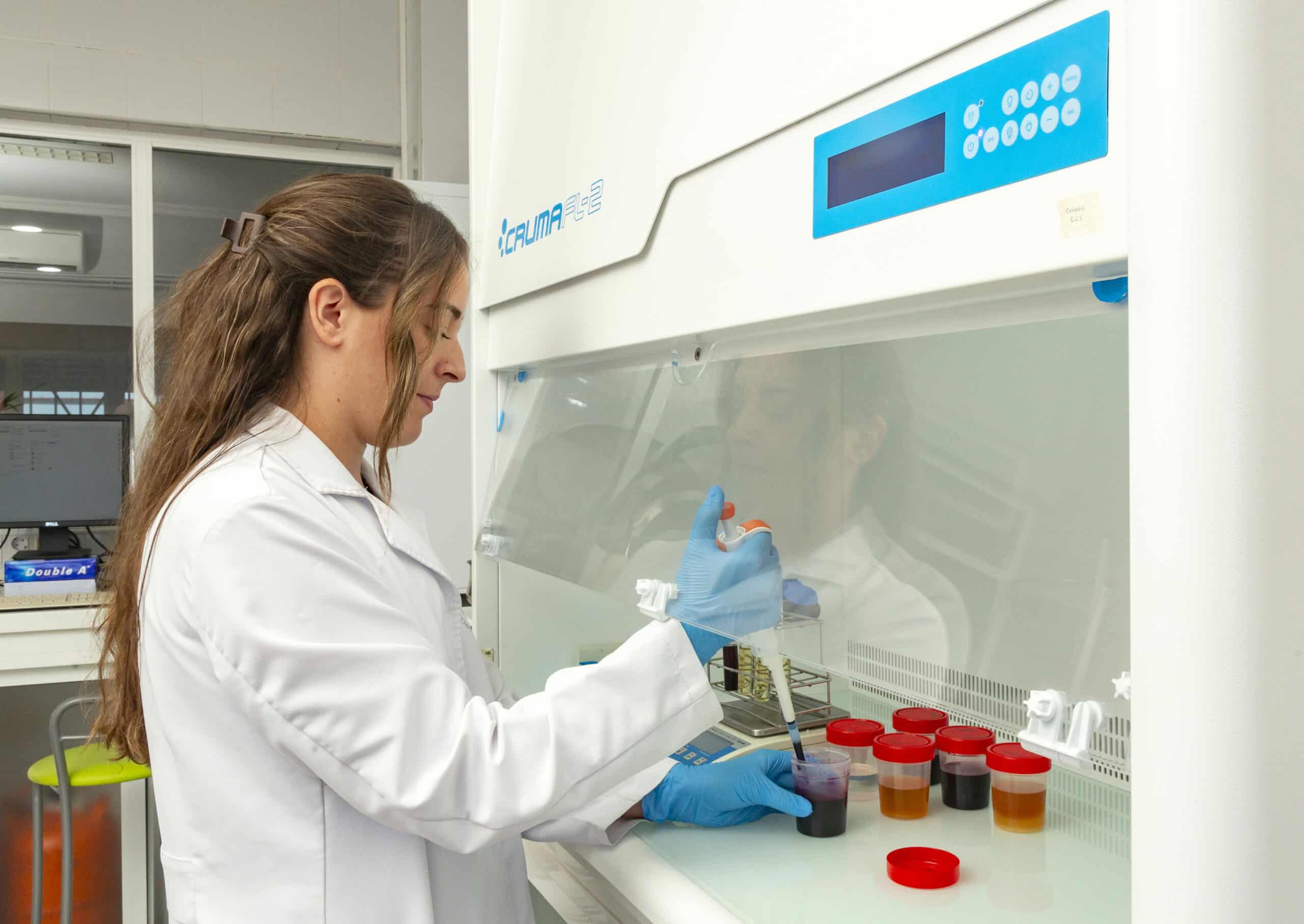
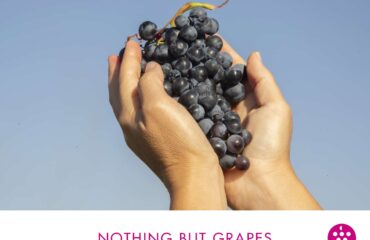
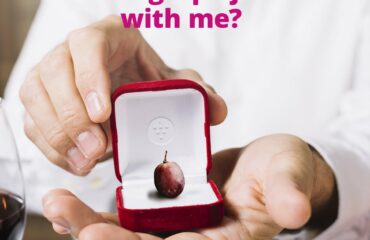
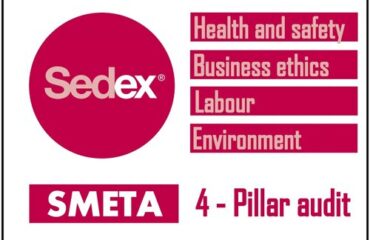
 by
by